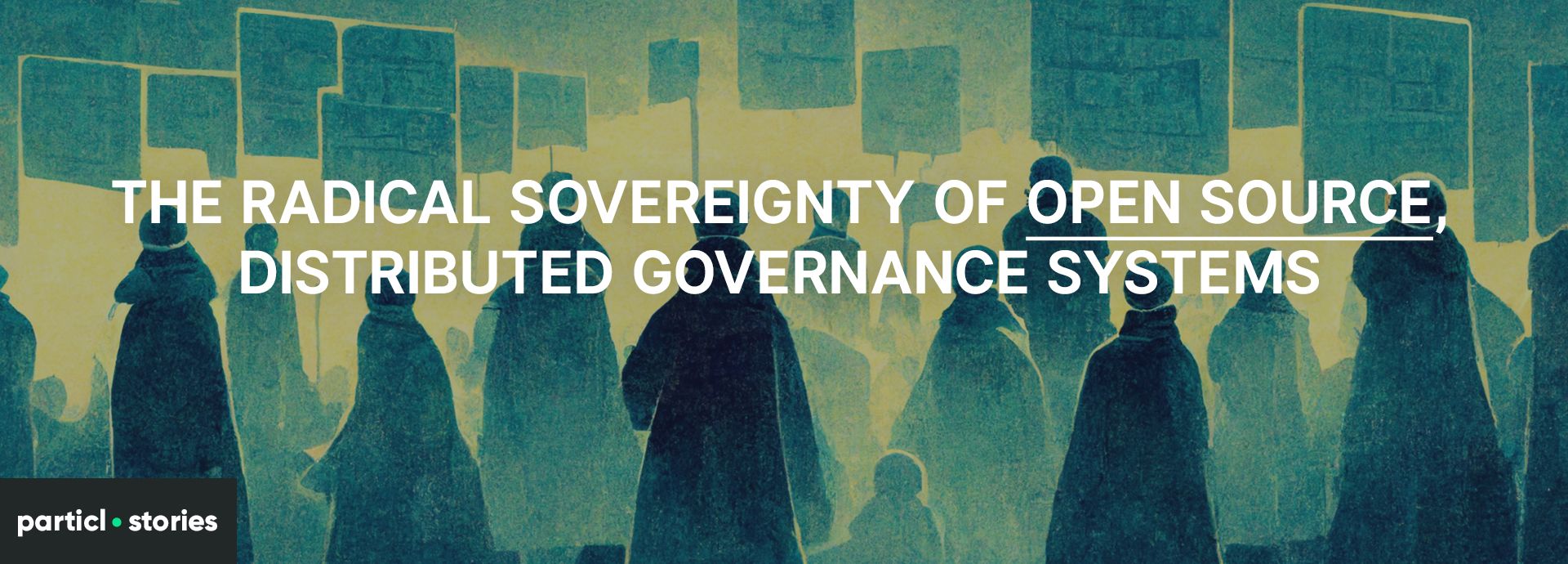
The power and ethos of blockchain technologies raise new, important possibilities on the topic of governance and political organization - specifically, about how blockchain-centric and privacy-centric organizations and projects ought to be structured.
While there are no one-size-fits-all answers, the powerful shakeup blockchain technologies brought to the internet means a lot more room for novel ideas of organization in this sphere. The advent of distributed autonomous organizations is a prime example; while still in their early stages, DAOs lay the groundwork for political systems that are more compatible than ever with open-source products and services - especially truly disruptive, dissident applications of these new technologies.
A decentralized autonomous organization (DAO), as we know, is a community made up of a multitude of participants, which functions according to the rules of governance inscribed in smart contracts as well as a democratic process of engagement. Management of those organizations is decentralized and democratic: decisions that need to be made are made by stakeholders via an auditable, distributed public vote. That is the case, for example, with the Particl privacy-centric protocol, which concluded its latest development funding vote this week.
Sovereignty and Disruptive Technology
Political thinker Carl Schmitt is well known for his articulation of the “Ausnahmezustand”, or “state of exception”, as well as its varied political implications.
Sometimes defined as an emergency provision allowing a given government to suspend the rule of law (such as martial law, or the french état de siège), Schmitt’s theory of Ausnahmezustand actually cuts deeper: at a deeper level, whoever decides on this state of exception, or is in a position to deem it to exist and to remedy to it, can ultimately be defined as the “true sovereign". All other structures of power involved - whether it be a state government, a supranational entity, or the governance of an organization such as Tornado Cash - ultimately fall under the remit of this “true sovereignty”. This has powerful, broad implications; particularly on communities and projects that threaten the interests, or even the existence, of genuinely sovereign power structures.
Of course, a truly disruptive technology or service isn’t abstractly disruptive: it is disruptive with respect to a concrete power structure – oftentimes state power, endowed with powerful means to preserve its integrity. Such was the case with the recent Tornado Cash debacle, a crypto mixer that became so disruptive to American national interests as to force the U.S. Treasury Department to flex some of its most powerful tools to nearly instantly crush it out of existence. One of its main developers, Alexey Pertsev, was arrested, jailed, and even denied bail in the Netherlands, thousands of miles away from the White House. While it may be too late for Tornado Cash to ever come back from this blow, several lessons can be learned from this.
Moving Forward: Divide AND Rule
What can we learn of such a conditional governance, a governance that functions because it is allowed to? Ausnahmezustand, we can see, invokes a powerful paradox - but even Schmitt could not possibly have predicted the political realities that offer themselves to us today.
While still in their infancy, encrypted and truly distributed blockchain-era technologies — and the political structures they make possible — reveal themselves as powerful alternatives to traditional governance. This is especially true for organizations that threaten the power structures at work within the political spheres they are bound to; examples include dissident media entities, gray marketplace environments, currency exchange platforms, or even file sharing platforms and protocols. For those rebels, distributed and anonymous decision making, file hosting and communications become shielded from the potentially dire consequences of their resistance.
Without the unique aspects of DAOs - specifically its distributed nature, its private and pseudonymous aspects, and its utmost resistance to censorship - this “true sovereign” of any truly disruptive product or organization must by definition be unaccountable. This is because they either must be cloaked in total obscurity, being obligated to expertly hide themselves from power in order to subsist, or ultimately fall prey to the interests of higher powers. Distributed sovereignty, in this context, flips the old adage: divide AND rule, but on the terms of the many instead of the few.
Distributed Rule: A Future of Possibilities
Principles of liberty, free access to information, freedom of association, and open source technologies come together in such a radically distributed system of governance. With a lot of room to grow, decentralized autonomous organizational structures have enormous potential to radically redefine the structuring of economic activities and, at the same time, major economic, financial, and even legal issues — the exploration of which has only just begun.
If you want to learn more about the revolutionary decentralized ecosystem we're building at Particl, and if you want to contribute to the growth of online privacy and liberties, then come join our awesome global community of cypherpunks on Discord, Telegram, or Element — or just give one of our decentralized and privacy-first apps a try here.
Join the discussion
What's your stance? Curious to see what others already said? Even better, start talking about this story with peers and pals by tagging them in your tweets.
Is Particl Marketplace for you?
Buy and sell anything free of commissions, restrictions, and prying eyes.